 Before I was so rudely interrupted by technology, I had written a bit about vaccinations and looking at whether or not it was sensible – really for people who were sensible. There’s not much to be done about those that are not sensible; that’s just the way humanity is and, should we have forgotten, being sensible isn’t necessarily being right.
Before I was so rudely interrupted by technology, I had written a bit about vaccinations and looking at whether or not it was sensible – really for people who were sensible. There’s not much to be done about those that are not sensible; that’s just the way humanity is and, should we have forgotten, being sensible isn’t necessarily being right.
Since I wrote that, a few things have happened.
Some old classmates were going back and forth on a facebook post with some amusingly open ended innuendo related to vaccination when out of the blue, I got a Facebook call from one of them. I normally don’t do Facebook calls but for some reason, I picked up because hey, it’s an old classmate, I wasn’t writing and I had sufficient coffee to entertain the thoughts of someone else.
Nigel, as it happens, had a lot to say. He went through the same process I did, he understood that I chose to get vaccinated because I’m managing my comorbidities. We had a pretty good discussion and even though he has chosen not to get vaccinated yet, I’m comfortable with him being sensible about his decision. His stance is educated and nuanced – he’s not a doctor, he knows he’s not, but there are so many vaccinations one can get and choices have to be made. Really, he doesn’t know which one has the most value to him, or any value at all.
We talked a bit about social responsibility, and the possibility of those having taken a vaccination – like myself – finding out that they may have made a mistake.
I laughed about this because, as it happens, the vaccine I did end up taking is the one that was available at the time and isn’t recognized by some countries for travel. Had I known more when making the decision, I might have waited til others were available, but the information just wasn’t there and neither were the other vaccines. Having recovered mostly from my surgery – I can’t go physically full tilt for about a year- I made the choice based on the information I had.
All decisions are like that, you see. Only in classrooms is all the data provided. In life, you just do the best you can with the information at hand. If you have lived long enough, truly lived, then you do not regret the decisions even though you may regret a lack of knowledge before making the decision.
It was a fun talk, really. It wasn’t a debate, it was an exploration of positions between 2 sensible people who have enough mutual respect to not shout down others.
Through this conversation and a few others, I came up with a quick summary of what vaccinations do:
They may keep you from getting as sick from new strains (individual level), and thus they may allow less people to be hospitalized and so reduce strain on medical infrastructure when a new strain shows up in humanity.
I happened to be at the hardware yesterday because I had heard of the mythical power of steam mops, and I ended up listening to some employees talking about vaccinations. There were the two sides of it. One or two were going on and on about how mystical and magical the vaccinations were for slaying the Covid-19 virus and it was a bit much. I would tell them later that they had too much icing for the cake.
When I dropped my summary, both sides of the debate agreed and that was that.
When presented with that simple summary, I’m finding people aren’t as turned off from discussion because it’s short, it’s accurate, and it acknowledges ‘maybe’.
Would I like to see more people vaccinated? Certainly. Does their lack of vaccination create a direct threat to me? No. Fear on either side leads to some really polarizing conversations.
The truth is that most people I encounter these days are a bit tired of being afraid. Maybe – and I say this emphatically – maybe if people stop being so polarizing, we can make some progress, or at the least, not be douchebags to each other.
After all, I don’t really like when people talk down to me, or shout at me. I tend to ignore their message.
I’m pretty sure most people are like that.
pandemic
Vaccination? Think It Through.
 You might have heard something about this Covid-19 pandemic. It’s been a thing for a while. It’s causes all sorts of people to say all sorts of things behind masks, in front of masks, or without masks.
You might have heard something about this Covid-19 pandemic. It’s been a thing for a while. It’s causes all sorts of people to say all sorts of things behind masks, in front of masks, or without masks.
And everyone, of course, is an expert except, apparently, actual experts who disagree with one’s point of view. Covid-19 had nothing to do with that, it’s a common human problem which oddly has not been as self-limiting as some would wish it to be.
Covid-19 is relatively new to us, and it’s been demonstrating all sorts of weaknesses in human societies, from medical infrastructures to economies. We’ve been wearing masks and washing our hands, and hopefully the rest of our bodies, pretty well at this point. From a collective perspective, we’ve done pretty well. The argument against masks – remember, there’s still that – is that they don’t block everything. Of course not. But they block some, and the whole point of that was to ‘flatten the curve’ – a trendy way of saying, “we just want to slow things down so our medical infrastructure can handle things”.
There are still people posting on social media against masks. There are still questions about it’s efficacy. Yet in the grand scheme of things, masks aren’t as much trouble to wear. People complained about wearing condoms when HIV first came out when there were a multitude of other reasons to wear condoms (STDs and unplanned children), but some people were still pretty strongly against condoms.
So, in response to this pandemic, very well educated and experienced people who don’t post much on social media because they have stuff to do have created vaccines.
There’s different brands of vaccines, different countries that produce them, and different marketing. We’ll get back to this
Governments have varying levels of access to different vaccines, and they’re trying to vaccinate as many as they can because that’s what we expect governments to do: To at least try to do things.
And of course, we expect vaccinations will help.
Generally, I’ve found both the arguments for and against vaccination somewhat dumb. I’ll explain why.
Bear in mind I’m no expert, bear in mind I am not pretending to be, but bear with me.
(1) The Covid-19 vaccinations are largely untested at the level that other vaccines have been tested. This is no surprise. They were pushed out fast. And yes, they didn’t go through the rigorous testing. Let’s face facts, we are indeed the experiment, and yes, the data is messy because we’re in the middle of the experiment. So that argument really doesn’t go to either side.
(2) The Covid-19 vaccinations may not work against new strains. Well, we sort of knew that going in. That’s how vaccinations work. Influenza vaccines get updated frequently for this reason, perhaps too often, and are a multi-billion dollar industry. In 2020, the market was 5.86 billion US dollars. And there’s 290 000-650 000 influenza-related respiratory deaths worldwide, annually.
Compare that to over 4 million deaths in a year from Covid-19. So, if you’ve been getting your influenza shots, you have no business arguing the Covid-19 vaccinations from this standpoint when deaths are roughly around
800% to 900% more per year. If you haven’t been getting influenza shots, the same argument applies. Vaccines win here.
And the marketing? The different vaccines? The different articles? Works in progress. We’re in the middle of the experiment and there are no good answers.
(3) Vaccinations may have side effects. Sure. And this is why you talk to your doctor and why you should listen to what your doctor has to say about your particular case when it comes to Covid-19 vaccination instead of someone on social media. The lethal side effects of the vaccinations have been so small as to be considered negligible. In the case of Moderna, 339 million doses went out, 2 cases of TTS (Thrombosis with thrombocytopenia syndrome) happened in the United States. That’s 0.000000571%. Side effects: Not a good argument against vaccinations.
Yes, there may be side effects we don’t know about yet, but the odds are likely lower than the ones we do know about, and if not, we’re sort of screwed anyway, aren’t we? So vaccines win here.
(4) YOU CAN’T TELL ME WHAT TO DO!
OK, you win, I can’t tell you what to do, nobody should tell you what to do. I agree with the principle. You’re all grown up. But if this is your argument, I’m thinking you spent more time deciding what to get in the fast food line at lunch than you did about the vaccinations. If you’re truly going to act in your own best interests, perhaps you should research just a little bit more. And listen to Doctors. After all, while they may not have your social media connections, they did study medicine for, in the case of young doctors, roughly 1/3rd of their lives.
So, all in all… while there are good arguments against vaccination, they’re not quite good enough. This is the what I did before I got my own vaccination, because I have comorbidities, I recently had surgery, and I’m not going to screw around with this stuff.
No, I don’t think it should be legislated, I think that people should have the right to refuse it. I do. It’s a civil issue. But if we’re going to have that civil issue, we need people to actually think about their decisions – and even then, I know it’s complicated and it’s likely to get legislated because people aren’t thinking through their decisions. A misfortune, really, because by not thinking through one’s decisions…. in cases like this… eventually, decisions are made for individuals.
Within The Chrysalis
 Many of us are practicing social distancing at this time. We get updates from those in authority once or twice a day, and the rest of the information is largely derivative of that – from actual analysis, which is rare, to rampant speculation. We sit, surrounded by the walls of a home many of us have not had the opportunity to become intimate with. Our mini-vacations at home have become a long stay.
Many of us are practicing social distancing at this time. We get updates from those in authority once or twice a day, and the rest of the information is largely derivative of that – from actual analysis, which is rare, to rampant speculation. We sit, surrounded by the walls of a home many of us have not had the opportunity to become intimate with. Our mini-vacations at home have become a long stay.
We tour our prisons from the inside, these systems that are not working as we expected as nations, these walls that are uncomfortably close for many as individuals.
In our solitude, or being stuck with the people we only were for a fraction of the day, some of us try to escape into the speculation and analysis rather than face what’s at home. It scares us at such a subconscious level that we don’t even know we’re doing it. We fill our time with things that aren’t necessarily good for us.
We think little of who we want to be, or who we should be.
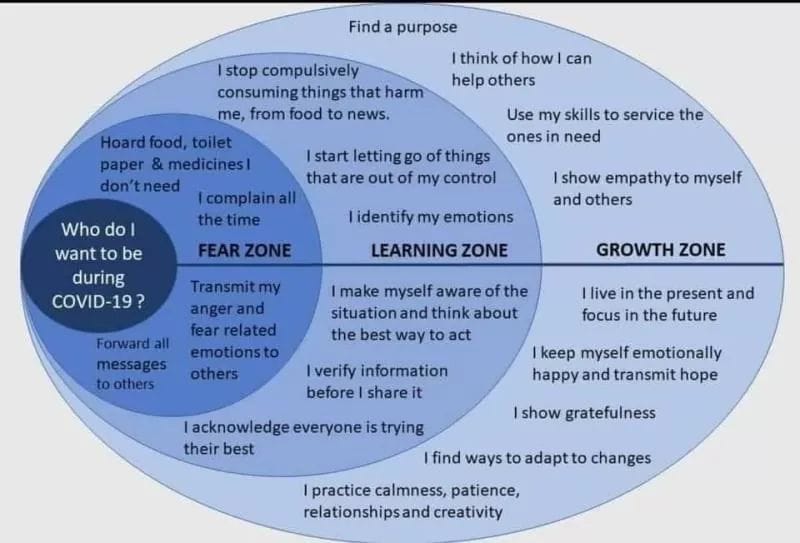
There are others with more pressing problems, like the poor in India who are walking home. In the attempts of states to quell the virus, borders have become locked down. People staying inside takes away from the lower rungs of the economy, the people you see on the street.
A few days ago I watched as someone tried to clean the windshield of a Range Rover at a light despite the lady driver not wanting it. He had her pegged, thinking that if he started she would feel obligated to give him something, but what he failed to realize is that the virus is larger than that feeling of obligation she may have had. He’s hustling to make a living, she’s hustling to get home virus-free.
 We have people who, unprotected socioeconomically, are at greatest risk for contracting Covid-19. In Trinidad and Tobago, the Chief of Police rattled his saber when on the first of the month people were not practicing social distancing at banks and groceries, even threatening to close them down – but the systems in Trinidad and Tobago lag, pensioners need to cash cheques because the electronic system fails them. Sure, maybe it’s available, but that they don’t use it is a failure – a design problem. No one seems to think that the businesses bear responsibility here. Of course they do. At the cost of a roll of duct tape, they could have social distancing easily visible.
We have people who, unprotected socioeconomically, are at greatest risk for contracting Covid-19. In Trinidad and Tobago, the Chief of Police rattled his saber when on the first of the month people were not practicing social distancing at banks and groceries, even threatening to close them down – but the systems in Trinidad and Tobago lag, pensioners need to cash cheques because the electronic system fails them. Sure, maybe it’s available, but that they don’t use it is a failure – a design problem. No one seems to think that the businesses bear responsibility here. Of course they do. At the cost of a roll of duct tape, they could have social distancing easily visible.
Some businesses do this. In an odd way, the lines of tape meant to separate us are the very thing that will allow us to re-connect beyond this virus.
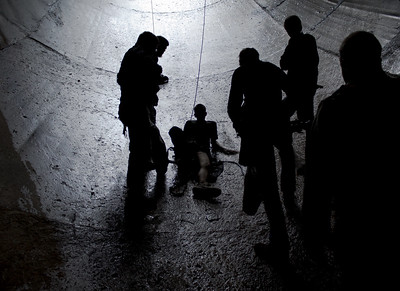 We are shocked at triage throughout the world, where the limits of resources are stretched beyond capacity. Doctors in some places have made choices, in other places they will have to make choices. In the U.S., the silent triage of health insurance that has been happening has had a virus demonstrate the flaws in the system, particularly when the measures to slow the virus have taken jobs away.
We are shocked at triage throughout the world, where the limits of resources are stretched beyond capacity. Doctors in some places have made choices, in other places they will have to make choices. In the U.S., the silent triage of health insurance that has been happening has had a virus demonstrate the flaws in the system, particularly when the measures to slow the virus have taken jobs away.
Many are alone, unpaid in a global economy that requires it’s pound of flesh to simply stay alive. There will be more.
Those of us who are at home read all of this, staring at statistics that are implicitly flawed for a variety of reasons, as if staring at the clock will allow the pot to boil faster. The majority of us will get this virus, and how our body reacts will determine which stack of numbers we belong to – and the vast majority of us will be in the stack that will be mourning the loss of loved ones and friends afterwards. That’s the reality and, as realities go, it’s not very different from normal life except for one thing:
Why.
So to give them their best chance, to give ourselves our best chance, we stay within our chrysalis as individuals, as states, and eventually may realize the wringing of hands has no positive effect – in fact, it can simply spread anxiety – and we watch, for it is important for us to witness this and see how we need to change things – and we wait.
“When you come out of the storm, you won’t be the same person who walked in. That’s what this storm’s all about.”
-Haruki Murakami
Eventually we will make our way out of our chrysalis as individuals and as states, and after that as a species.
Calm Down.
Throughout my social networks, well intentioned armchair epidemiologists pounce on every tidbit they find related to Covid-19, depositing them in my newsfeed with the same level of pride a cat must feel when it drops a ravaged mouse for it’s owner. Some are recycled, some are not, and if it’s coming out of some countries, the media is so busy with the spin machine that they don’t seem to know at some point laundry needs to get into the dryer to be of use.
It’s tiring.
The truth is – whether accepted or not – is that we have experts at the World Health Organization and through governmental health agencies all over the world on this and they are doing all they can.
Another truth: We have doctors and nurses and other medically trained staff, even putting their own lives on the line as the work without appropriate protective gear. At great personal expense and risk, they are the front lines doing what they can in the face of a pandemic.
Another truth: They’re learning as they go. An update today may not be legitimate tomorrow, what may be true in China may not be true in Italy, may not be true in the U.S. All the experts are learning as they go.
Another truth: A vaccine has to go through trials, which is about a year. So we’re in this now, no vaccine will come out tomorrow. Or today. You can stop looking for updates on that. If a vaccine shows up, it will be experimental, and that comes with risks.
Another truth: Media and social media are rampant with all sorts of things, but unless it comes directly from a legitimate source, such as the World Health Organization, consider it speculation.
Be careful about reading health books. You may die of a misprint.” – Mark Twain
Do what the local authorities tell you to. Wash your hands. Don’t go around sticking things in your mouth. And wait.
Wait for the truths. Otherwise you’re just raising your anxiety and the anxiety of those around you.
Things To Do Online
 As people get used to this ‘normal’ of being home, and as they run out of things to do and are tired of all the noise related to the pandemic (as opposed to the useful information from WHO and local health authorities)… well, there are things to do. Had this happened before the Internet… well… but it has happened after the Internet, so there’s so much more to do.
As people get used to this ‘normal’ of being home, and as they run out of things to do and are tired of all the noise related to the pandemic (as opposed to the useful information from WHO and local health authorities)… well, there are things to do. Had this happened before the Internet… well… but it has happened after the Internet, so there’s so much more to do.
It’s amazingly easy to find things to do once you take a break from the social networks. They don’t enrich you. Only you enrich you.
I’ve broken it up into exploration and education… to me these things are not mutually exclusive, but to others…
Explore (Fun)
Maybe you don’t feel like exploring space with NASA and want something more grounded.
Try 500 online museums from around the world, courtesy Google, a stunning display of our world digitized.
You can go further and use Google’s Streetview to see other distant places on the planet, captured by Google’s nosy cameras.
Reading? Try the Gutenburg Project, where you can find all sorts of books that are legally free and yes, are available in e-reader formats.
I’ve been joking about people staring into their kitchens and not knowing what to do with them – which presents the opportunity for exploring recipes. Hit a search engine and see what you can find to cook.
Being a bit of a nerd myself, I sometimes explore Wikipedia and read up on random things as well. I’m that person that uses the ‘random page’ functionality.
Online Courses
Imagine 1,500 online courses you can take at no cost. You don’t need to. OpenCulture.com lists 1,500 online courses. Some come with completion certificates.
If you want to be more direct about it, here’s online courses by a few major institutions:
Networks such as LinkedIn and others have more professional certificates available as well, but those are (of course) at a cost.
The Hedgehog’s Hot Summer.
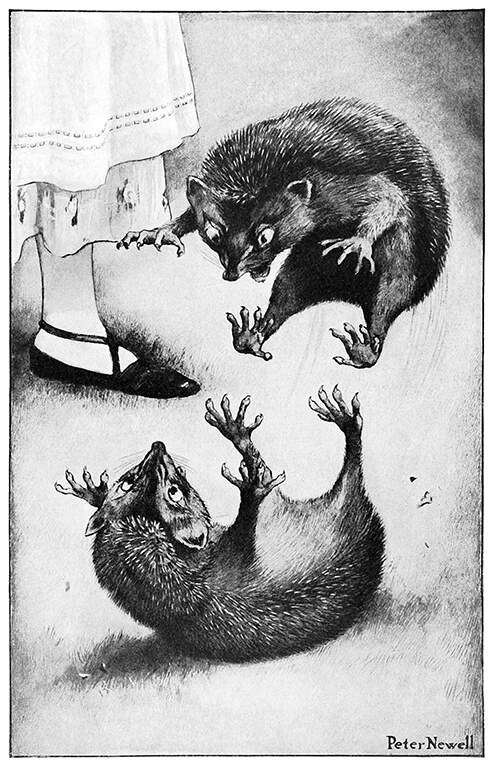 Many of we humans that litter the planet aren’t used to this concept of ‘social distancing’. It will be tough for many; for people like me it is amazingly easy as we have been doing it for some time, for varying individual reasons.
Many of we humans that litter the planet aren’t used to this concept of ‘social distancing’. It will be tough for many; for people like me it is amazingly easy as we have been doing it for some time, for varying individual reasons.
You know us. Barely.
At best, you know us as well as we want you to know us, at worst, you don’t know us well enough to allow us to associate with you. And now, here you are, at home, working from home… if you have others at home, the rest of this may not benefit you. Or maybe it will. I don’t know.
There’s this guy – Arthur Schopenhauer – he died in 1860, long before I could meet him. He wrote about the Hedgehog Dilemma:
A number of porcupines huddled together for warmth on a cold day in winter; but, as they began to prick one another with their quills, they were obliged to disperse. However the cold drove them together again, when just the same thing happened. At last, after many turns of huddling and dispersing, they discovered that they would be best off by remaining at a little distance from one another…
…By this arrangement the mutual need of warmth is only very moderately satisfied; but then people do not get pricked. A man who has some heat in himself prefers to remain outside, where he will neither prick other people nor get pricked himself.
What has happened around the world is, because of the Covid-19 Pandemic, the quills have become longer. They have become longer much more quickly. People are scared, and when people are scared in a time when pitchforks and torches aren’t easily accessible, they apparently buy toilet paper and produce and share memes, and it’s hard to argue which of the two is more pragmatic. It’s always handy to have toilet paper, and it’s always good to laugh a bit when things aren’t as nice as we would like.
I could write something about mediation here, but this sentence should suffice for people who understand what mediation means.
That being said, as people adjust to the new normal, those who live by themselves will find themselves alone. For some, this is disconcerting.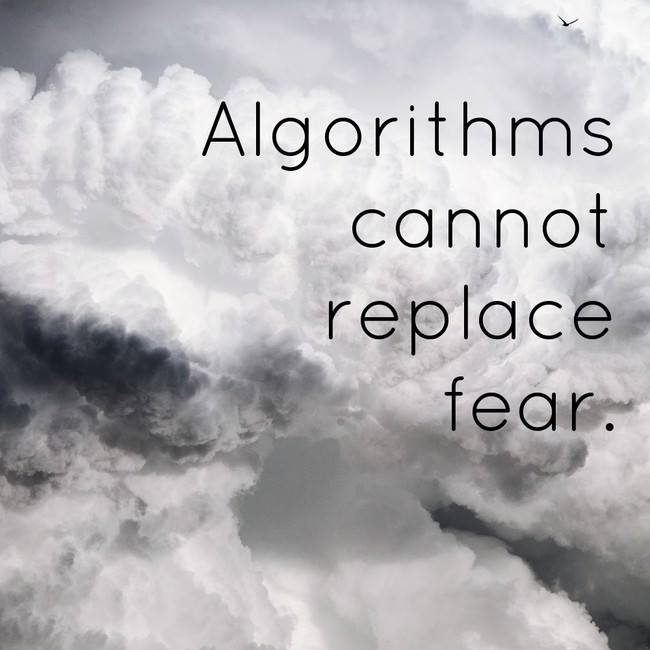
Being faced with the prospect of not having the usual suspects as distractions, new distractions will arrive. Algorithms tell social media that people want to read more and more about Covid-19, and the reality is that we do largely know what we need to know already and the constant barrage of updates will become tiresome – but the algorithms have to be taught that.
Algorithms cannot replace fear, but they most certainly enable it.
Step 1 to your new solitude is to understand that, and limit exposing yourself and the others connected to you to a bunch of stuff that will simply burn everyone out. Less social media.
But what will you do? Ahh, it is a scary world, solitude, but it is ripe for use with books, with in home projects you never quite seem to get around to – and with sleep, with music, with movies… and yourself, perhaps the scariest thing in the world for most people. No matter where you go, though, there you are, and you can do things like reflect. Exercise. Think. Perhaps write, perhaps whatever, but the void you might feel can be bearable.
We know. We not only survive, we thrive this way – but it’s alien and scary for others. Yet, over the course of the coming year, at least for some months, it will be the new norm. And it can be ok if you let it.
Undiseased.
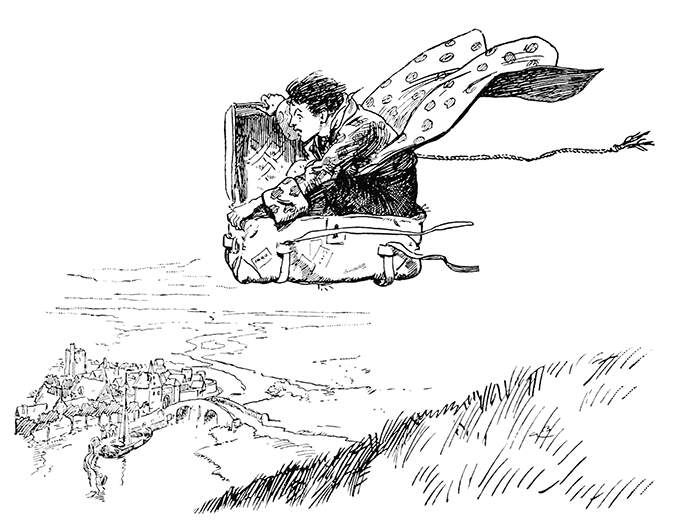
I’m flying through social media trying to avoid the pandemic as if it were the plague and it seems impossible to do so. It’s a bit frustrating to take a break from the book I’m working on to surface and be drowned in a sea of posts about the same things, invariably a matter of individuals being dependent on systems that they largely don’t control and at the mercy of the hygiene of the next person.
Being isolated is nothing new for me; it’s a lifestyle choice, a means of getting things done. Right now, though, there are parents at home with their children and parents and children alike suffer one another. Couples who may be used to seeing each other for a limited number of hours a day now find themselves staring at each other.
People are scared, and because people are scared they begin acting as tour-guides and narrators to the strange garden our lives have become.
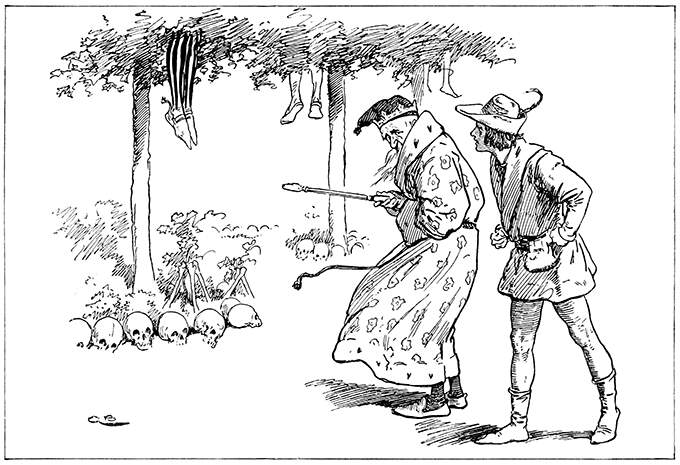
Enough already.
So, when I’m not working on other things, this site – which admittedly has been dormant for some time – is where I won’t be writing about all of that, simply because the world most certainly doesn’t need more people jabbering away about Covid-19.
I’m not sure what I’ll write about. Feel free to comment and toss topics at me.
